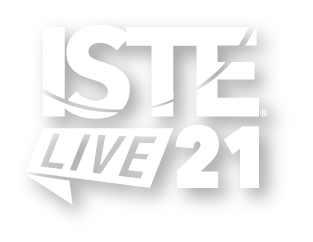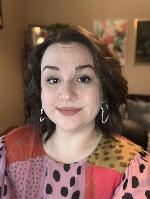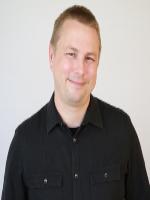

Let's Get Virtual: Tech Tools for Learning at Home |
Participate and share : Poster
Chelsee Wilson Adam Yeargin
Explore tech tools that can be easily implemented at home or in the classroom for online, distance or blended learning. Participants will discuss and experience cataloging wildlife, augmented reality, science experiments, and virtual trading cards and timelines.
| Audience: | Teachers, Technology coordinators/facilitators, Library media specialists |
| Skill level: | Beginner |
| Attendee devices: | Devices useful |
| Attendee device specification: | Smartphone: Android, iOS Laptop: Chromebook, Mac, PC Tablet: iOS |
| Participant accounts, software and other materials: | Seek by iNaturalist Google Science Journal |
| Topic: | Distance, online & blended learning |
| Grade level: | PK-12 |
| Subject area: | Social studies, STEM/STEAM |
| ISTE Standards: | For Students: Creative Communicator
Facilitator
|
In this session, participants will explore five technology tools (maKey maKey, ReadWriteThink, Seek by iNaturalist, Google Science Journal, and Chrome Music Lab), experience ways to use them in an online, blended, or distance learning setting, and analyze ways that they could use these tools with their own students. Participants will receive task cards with step-by-step instructions for each tool that they can then use with their students and their parents, and participants will be able to make digital copies of the presentation and ask questions of the presenters. The session will allow participants to have a guided and curated experience that allows for construction of knowledge on their own terms.
Currently, this presentation style has been used with 20 different school districts in Oklahoma with proven success based on participant feedback and reflections. Allowing participants time to process the tools and providing them task cards that they can use once they are back in the classroom have been highly successful.
Herrington, J. et al., describes the four components in an authentic lesson as 1.) Students should seek to solve a real-life problem to which they would attach emotional commitment as well as a cognitive interest, 2.) The problem should be sufficiently open-ended so that there are a variety of strategies for its solution. 3.) The problem-solving strategies and "solutions" developed should encourage students to change their actions, beliefs, or attitudes. 4.) The problem should have a real audience beyond the classroom. Authentic tasks are more worthy of the investment of time and effort in higher education than de-contextualized exercises and tasks (Herrington & Herrington, 2006)
Furthermore, Magana (2017) argues that it is of "critical importance that students are given the opportunity to investigate problems that matter to them, design questions that address those problems, and then use the tools of research and inquiry to generate solutions to those problems. Magana, S. (2017) Disruptive Classroom Technologies.

Chelsee Wilson is the English/Language Arts and Social Studies Curriculum Specialist for the GEAR UP for the FUTURE grant at the K20 Center at the University of Oklahoma. Prior to working as a Curriculum Specialist, she worked as a Field Technology Specialist and a Curriculum Writer. Before joining the staff at K20, she taught English and social studies at Westmoore High School in southwest Oklahoma City. She earned both her undergraduate and graduate degree at the University of Oklahoma.

Adam Yeargin is a professional librarian with over fifteen years experience working in libraries. He has a Bachelor’s degree in Music from Texas Tech University, and a Masters of Library Science from the University of Maryland. Adam is currently working at the University of Oklahoma, at the K20 Center for Educational and Community Renewal where he is an Instructional Coach and Curriculum Specialist on a GEAR UP grant from the US Dept. of Education. Prior to coming to the K20 Center, Adam was a middle school librarian, promoting information literacy and educational technology to staff and students.